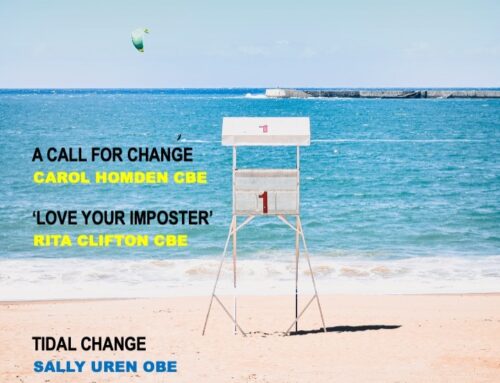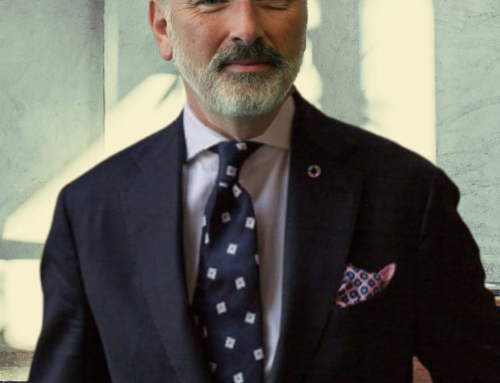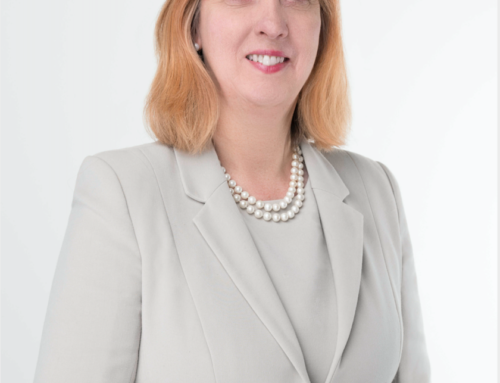Disruption
A Framework for the Future

Liminal is the word we use to describe the space between, where things are not exactly as they were and not, yet, what they will become. We can already sense that none of us will return to life as we knew it before. And, yet we collectively do not know what next looks like. So, how do individuals, organizations and communities absorb what is happening and still find the space to imagine what lies ahead? For businesses navigating the coronavirus, prospects are daunting in this liminal space. While many are navigating the current “new normal” well by taking each daily (hourly) change one at a time, some are starting to look past now through the power of “yes-and” thinking.
Yes-and thinking is non-binary thinking. This is the ability to see all of reality on a spectrum or in an interconnected system rather than a set of binary ones and zeros: good/bad, right/wrong, growth/failure, win/lose.
Businesses across the world are stepping up to address the needs of their employees and the communities in which they serve. Leaders are choosing to wade into the challenge and bring their company’s resources along to help keep humanity safe while the virus spreads. From continuing to pay employees who can no longer work to retooling product lines from beer or perfume to hand sanitizers, from shifting to food delivery rather than in-place dining, yes-and leaders are the ones creatively adapting to the reality of a global pandemic and its economic fallout.
Design-thinkers are mapping out plans for the future of work (and our planet). Interestingly, statistics are beginning to tell us that work from home may remain in place for many, now that the technology scramble is over. People have discovered that web-based conference calls can work just as well as in person meetings (most of the time) and eliminating the commute gives back loads of personal time. Some companies are cancelling their co-working space leases; watch for other companies to consider how to permanently eliminate the estimated $9000/employee cost associated with maintaining office space and desks. Not to mention, the carbon emission savings when we reduce commutes. The planet has seen some real environmental benefits.
While we have seen powerful stories of yes-and thinking, make no mistake – getting the economy back on track will not be a simple call back to work for everyone – or even just parts of the global workforce.
For the last three weeks, companies have hustled to react by sending workers home, shuttering stores and reorganizing factories. They are trying to adhere to a patchwork of guidance and regulations coming from public health experts and federal, state and local governments. Corporations are monitoring news and information about what others are doing, what’s working, what’s being implemented across other industries and sectors. Daily updates on infections, deaths and curve flattening are watched carefully for signs that might indicate light at the end of the tunnel. Looking outward for guidance has been important so that response successes are leveraged. But now that we are past this initial phase, a liminal stage is emerging and it’s a moment that calls for internal reflection – one that will be foundational for the difficult and complex decisions that lie ahead for companies and brands around the world. And let me be clear: there is no room in that calculation that puts profits above well-being.
We are collectively experiencing a global reset – a massive timeout – and companies and leaders have a moment to ask some pretty big questions. Who are we serving and are we including everyone we can? How are we making what we are making, and is there a way to do so with more resiliency and less environmental impact? Are our people able to build their work-life balance with more flexibility? What did we learn from this WFH era?
If we pay attention during this in-between time and maintain a yes-and approach to these decisions, there are guideposts for how to re-enter and rebuild. Start by reexamining your company’s purpose – the greater good it promises to society. That, plus the wisdom of your interdependent stakeholders will give you the framework to continue making decisions that are good for humanity and your business.
Sandy Skees leads the Innovation & Impact Practice at Porter Novelli and believes in the power of business as a platform for disruption and mobilization to help businesses, communities and NGOs create a regenerative and equitable world. Look for her recent TED Talk: The Future? Yes…And. Business As a Force for Change.
Sandy Skees
EVP Innovation & Impact Practice Lead
Porter Novelli USA
https://www.porternovelli.com/
Twitter: @sandyskees


Disruption
A Framework for the Future

Liminal is the word we use to describe the space between, where things are not exactly as they were and not, yet, what they will become. We can already sense that none of us will return to life as we knew it before. And, yet we collectively do not know what next looks like. So, how do individuals, organizations and communities absorb what is happening and still find the space to imagine what lies ahead? For businesses navigating the coronavirus, prospects are daunting in this liminal space. While many are navigating the current “new normal” well by taking each daily (hourly) change one at a time, some are starting to look past now through the power of “yes-and” thinking.
Yes-and thinking is non-binary thinking. This is the ability to see all of reality on a spectrum or in an interconnected system rather than a set of binary ones and zeros: good/bad, right/wrong, growth/failure, win/lose.
Businesses across the world are stepping up to address the needs of their employees and the communities in which they serve. Leaders are choosing to wade into the challenge and bring their company’s resources along to help keep humanity safe while the virus spreads. From continuing to pay employees who can no longer work to retooling product lines from beer or perfume to hand sanitizers, from shifting to food delivery rather than in-place dining, yes-and leaders are the ones creatively adapting to the reality of a global pandemic and its economic fallout.
Design-thinkers are mapping out plans for the future of work (and our planet). Interestingly, statistics are beginning to tell us that work from home may remain in place for many, now that the technology scramble is over. People have discovered that web-based conference calls can work just as well as in person meetings (most of the time) and eliminating the commute gives back loads of personal time. Some companies are cancelling their co-working space leases; watch for other companies to consider how to permanently eliminate the estimated $9000/employee cost associated with maintaining office space and desks. Not to mention, the carbon emission savings when we reduce commutes. The planet has seen some real environmental benefits.
While we have seen powerful stories of yes-and thinking, make no mistake – getting the economy back on track will not be a simple call back to work for everyone – or even just parts of the global workforce.
For the last three weeks, companies have hustled to react by sending workers home, shuttering stores and reorganizing factories. They are trying to adhere to a patchwork of guidance and regulations coming from public health experts and federal, state and local governments. Corporations are monitoring news and information about what others are doing, what’s working, what’s being implemented across other industries and sectors. Daily updates on infections, deaths and curve flattening are watched carefully for signs that might indicate light at the end of the tunnel. Looking outward for guidance has been important so that response successes are leveraged. But now that we are past this initial phase, a liminal stage is emerging and it’s a moment that calls for internal reflection – one that will be foundational for the difficult and complex decisions that lie ahead for companies and brands around the world. And let me be clear: there is no room in that calculation that puts profits above well-being.
We are collectively experiencing a global reset – a massive timeout – and companies and leaders have a moment to ask some pretty big questions. Who are we serving and are we including everyone we can? How are we making what we are making, and is there a way to do so with more resiliency and less environmental impact? Are our people able to build their work-life balance with more flexibility? What did we learn from this WFH era?
If we pay attention during this in-between time and maintain a yes-and approach to these decisions, there are guideposts for how to re-enter and rebuild. Start by reexamining your company’s purpose – the greater good it promises to society. That, plus the wisdom of your interdependent stakeholders will give you the framework to continue making decisions that are good for humanity and your business.
Sandy Skees leads the Innovation & Impact Practice at Porter Novelli and believes in the power of business as a platform for disruption and mobilization to help businesses, communities and NGOs create a regenerative and equitable world. Look for her recent TED Talk: The Future? Yes…And. Business As a Force for Change.
Sandy Skees
EVP Innovation & Impact Practice Lead
Porter Novelli USA
https://www.porternovelli.com/
Twitter: @sandyskees





